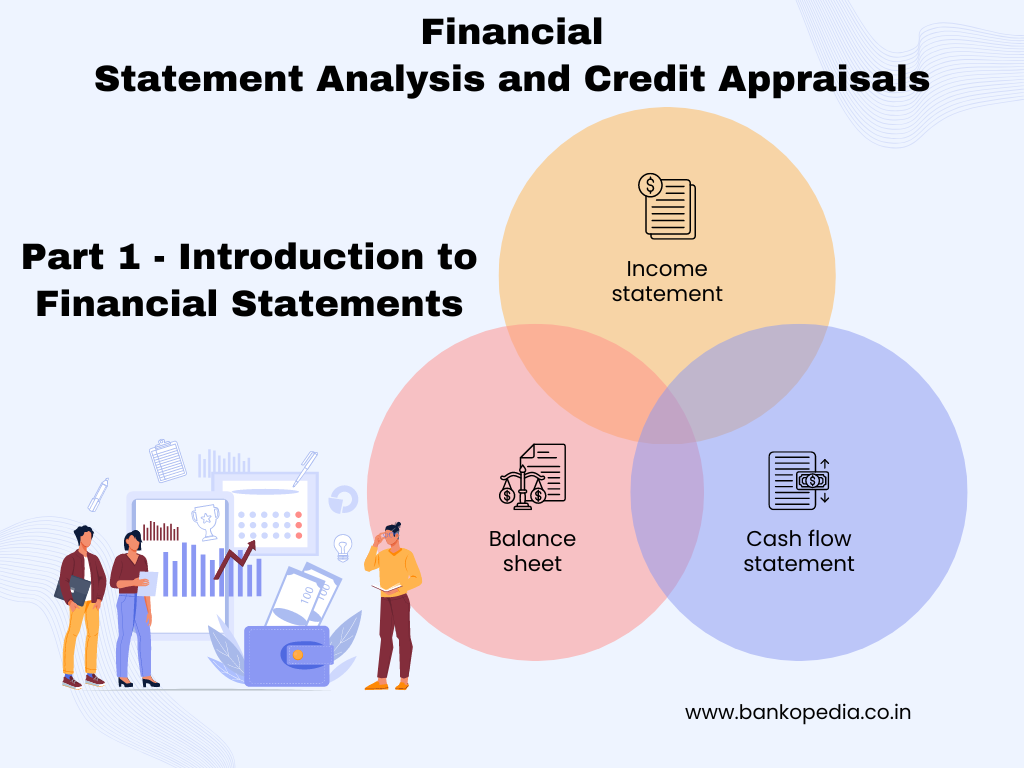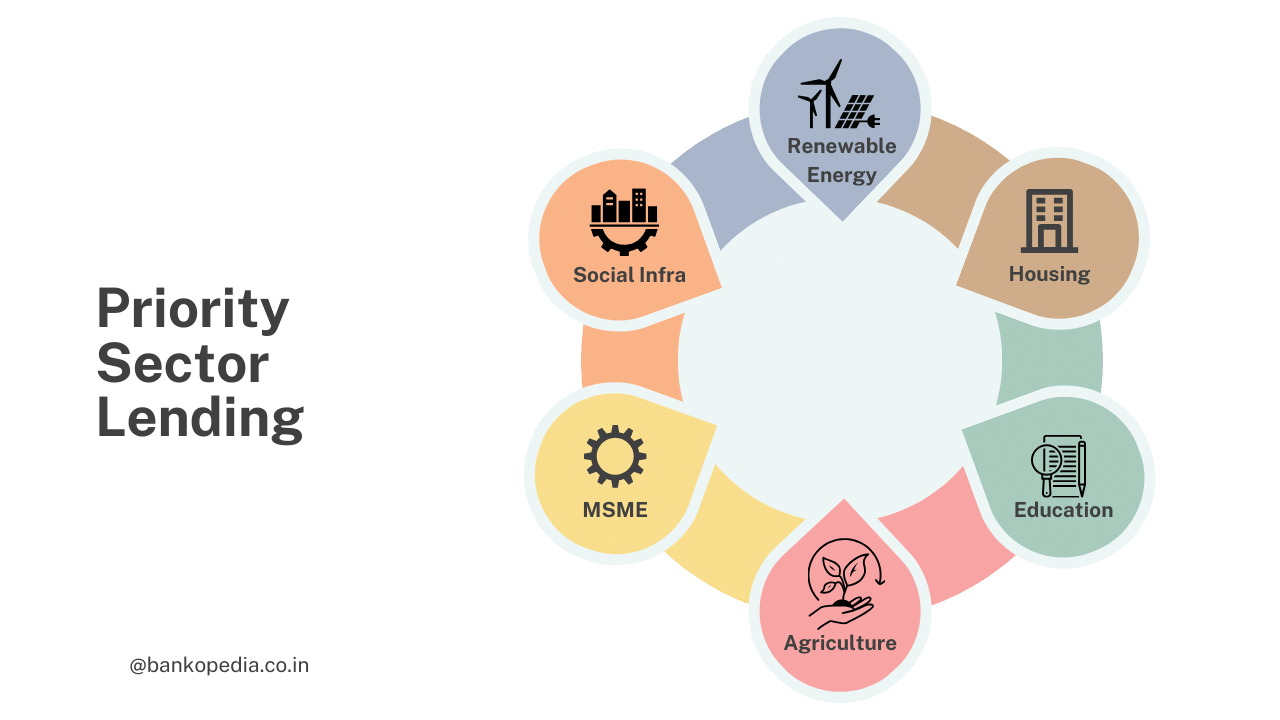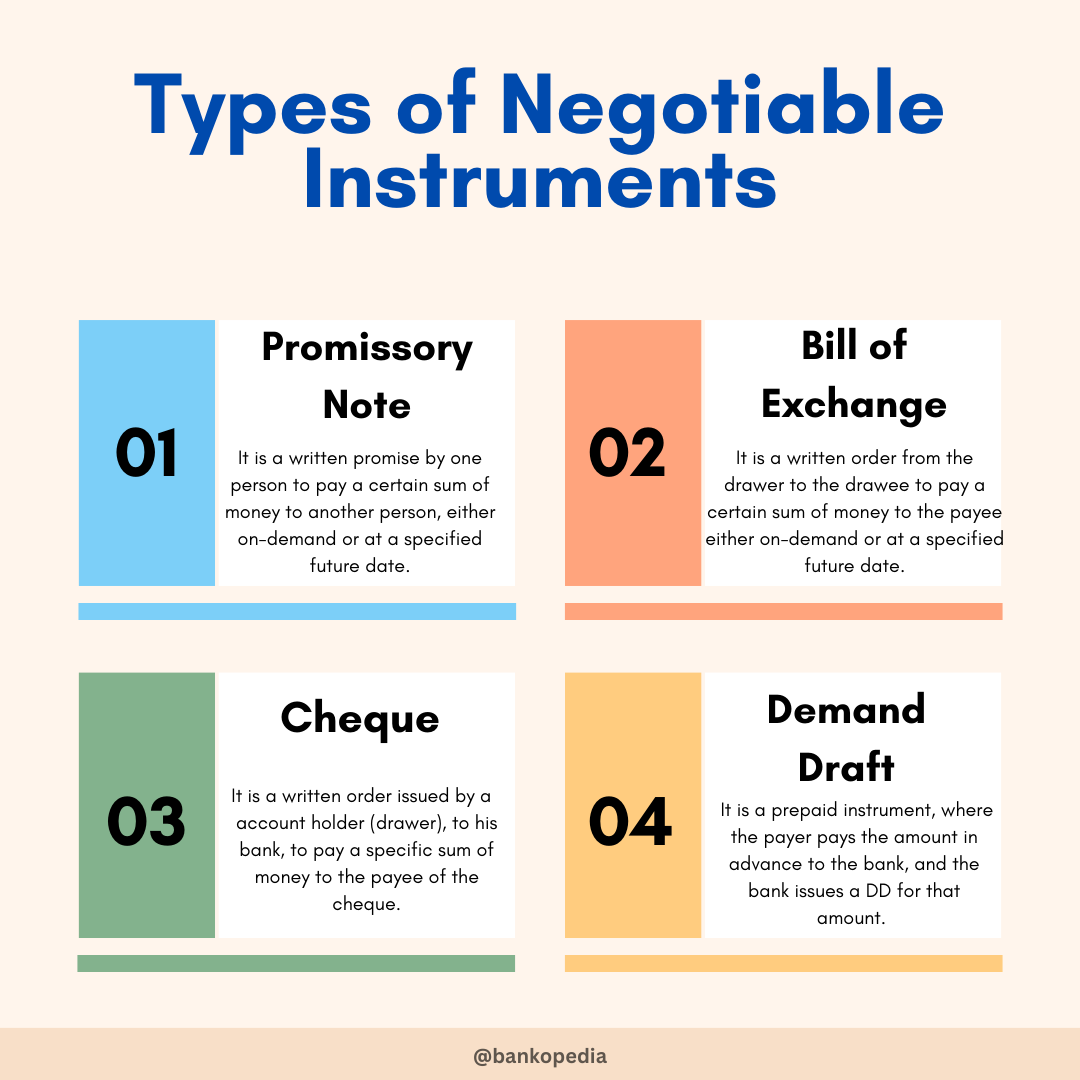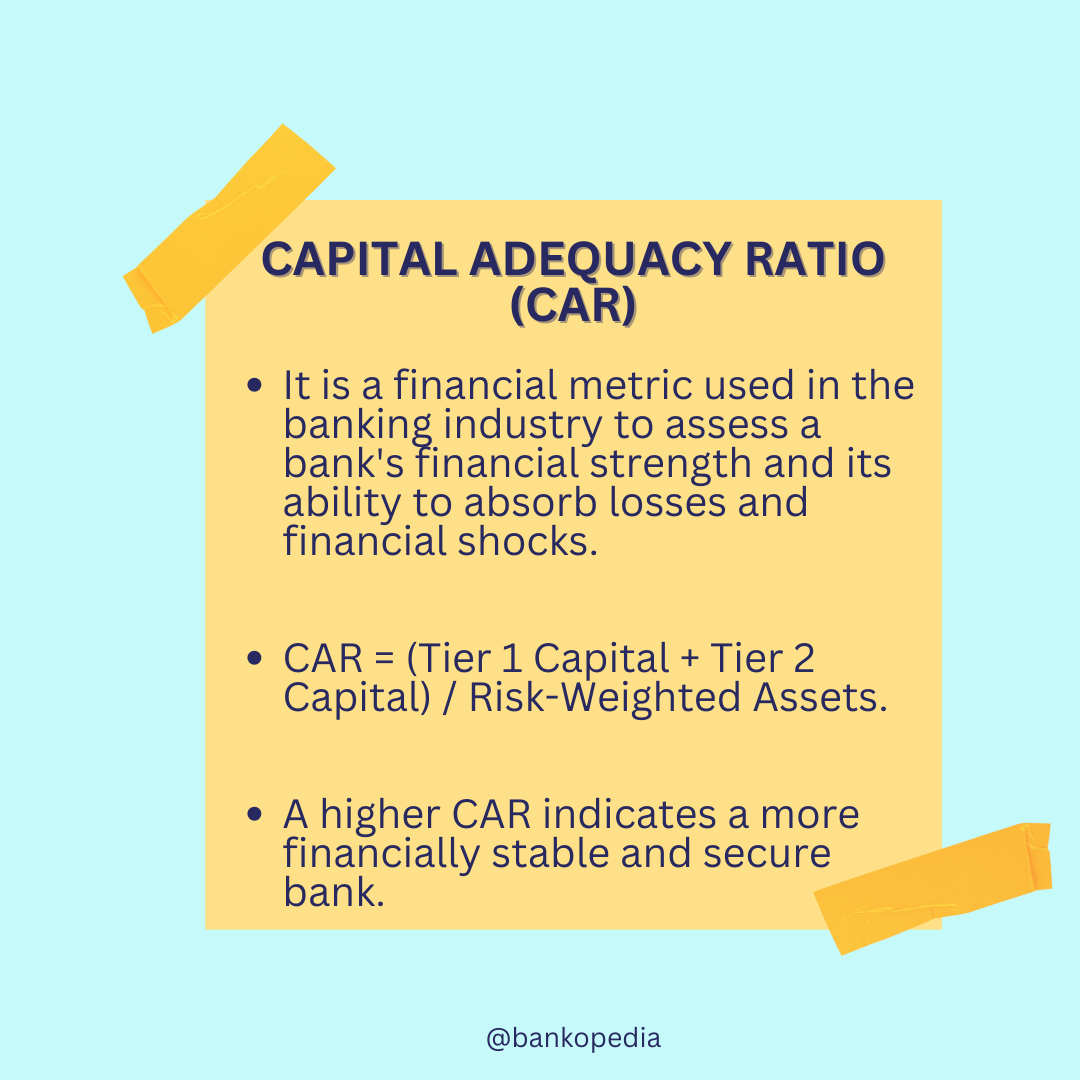Welcome to Daily Banking Digest, your premier source for the latest news and insights on April 13, 2024, focusing on banking, the economy, and finance. Our platform offers a comprehensive overview of the day’s most critical financial stories, market trends, and economic developments. Whether you’re a professional in the financial sector, an investor monitoring market movement, or someone interested in staying informed about the economic landscape, Daily Banking Digest provides reliable, up-to-date information.
Join our Telegram Channel for Daily PDF in your Inbox – Click Here
Table of Contents
Extension of Interest Equalization Scheme for Exporters: Commerce Ministry to Consider Five-Year Extension
The Commerce Ministry plans to extend the Interest Equalization Scheme (IES) on pre- and post-shipment rupee export credit for another five years to boost exports. The scheme, which currently ends on June 30, 2024, has been deemed beneficial for exporters.
Key Points:
- Extension of Interest Equalization Scheme: The Commerce Ministry will seek a five-year extension of the IES.
- Scheme Duration: The IES was initially implemented on April 1, 2015, for five years until March 31, 2020.
- Additional Allocation: On December 8, 2023, the Union Cabinet approved an additional allocation of ₹2,500 crore for the scheme’s continuation until June 30, 2024.
- Scheme Benefits: The IES has been effective in supporting exporters.
- Scheme Focus: The IES aims to promote outbound shipments from India.
India’s Credit Rating Affirmed as ‘Baa3’ with Stable Outlook by Moody’s, Growth Forecast Maintained
Moody’s has maintained a stable outlook for India, affirming its long-term and short-term ratings at ‘Baa3’ and ‘P-3’ respectively. The agency projects an 8% growth rate for FY2023-24 and over 6% for the following two fiscal years. While India’s large and diversified economy and stable domestic financing base support its credit profile, high government debt, weak debt affordability, and low per capita income remain concerns. Moody’s cautions that political tensions or a weakening of checks and balances could negatively impact the rating.

Key Points:
Outlook: – Stable outlook indicates a low likelihood of a rating downgrade in the near term.
Growth Projections: – 8% growth estimated for FY2023-24, higher than government projections. – Over 6% growth expected for FY2024-25 and FY2025-26.
Credit Profile: – Balances large and diversified economy with high growth potential against high government debt and weak debt affordability. – Political risk and domestic polarization pose event risks. – Banking sector risk has eased due to the weakening of the feedback loop between the financial sector and the real economy.
Concerns: – Upside risks to inflation and interest rates could challenge fiscal consolidation efforts. – High global and domestic interest rates will continue to challenge debt affordability.
Other Factors: – India has benefited from infrastructure development, digitalization, and financial system rehabilitation. – Private consumption and investment could rise as disinflation and election-related uncertainties ease.
Digital Competition Bill: A Concern for Small Businesses, Says India SME Forum
The India SME Forum (ISF) has expressed concerns about the proposed Digital Competition Bill (DCB) to the Corporate Affairs Ministry. The ISF believes that the DCB could hinder the growth of small and medium enterprises (SMEs) by limiting their access to digital platforms and discouraging them from adopting digital trade. The ISF also highlights the lack of MSME representation in the consultation process for the DCB.
Key Points
SME Stifled – The DCB’s focus on digital services limits SMEs’ ability to extract value from digital platforms and deters them from adopting digital trade. – This approach could hamper investments and growth in the Indian e-commerce sector, depriving MSMEs of the potential benefits of e-commerce expansion.
Limited Consultation – The ISF emphasizes the limited scope of consultation in framing the DCB and the absence of MSME representatives in these discussions. – Including MSME representatives in future consultations can ensure their voices are heard and their unique challenges are considered.
Targeted Advertising – The DCB’s provision limiting platforms’ use of data for targeted advertising could harm MSMEs, who rely heavily on this advertising for revenue generation and customer acquisition. – Traditional advertising media is less cost-effective and accessible for MSMEs.
Trust and Transaction Costs – Digital platforms offer SMEs advantages such as lower transaction costs and increased trust in transactions. – Regulations imposing blanket bans on practices like tying and bundling could undermine this trust and complicate resolution processes.
Policy Uncertainties – The DCB’s case-by-case approach could create policy uncertainties that disproportionately harm MSMEs and start-ups. – Small businesses are less equipped to navigate or forecast the implications of such changes, amplifying their vulnerabilities.
Adani Group Plans ₹1,689 Crore Investment in Ship Leasing Venture at Gift City
Adani Ports and Special Economic Zone Ltd (APSEZ) has established Poseidon Leasing IFSC Ltd, a subsidiary company, to operate within the GIFT SEZ in Gujarat. The company will focus on ship leasing, including operating leases or financial leases of ships, ocean-going vessels, and their engines or other parts. The establishment of Poseidon Leasing IFSC Ltd is expected to further strengthen Adani’s presence in the maritime sector.

Key Points
Establishment of Poseidon Leasing IFSC Ltd – Estimated investment of ₹1,689 crore – Step-down subsidiary of APSEZ – Focus on ship leasing
Ship Leasing in Gift City – Allows Indian companies to transact in foreign currency – Provides exemptions and incentives for ship leasing businesses – Tax breaks include income tax waiver and no input GST
Benefits of Setting Up in Gift City – Tax breaks – Exemption from regulations and taxes – Access to foreign currency transactions
Other Companies in Ship Leasing at Gift City – Ripley Shipping India IFSC Pvt Ltd – Reliance Industries Ltd
Global Ship Leasing Market – Estimated $75 billion paid annually for seaborne freight to foreign shipping companies – Global charter hire market pegged at $100 billion.
India-Mauritius Tax Treaty Revised to Enhance Tax Compliance and Combat Evasion
A revised tax treaty between India and Mauritius will only take effect upon signing and will not be applied retroactively. The new treaty includes a principle purpose test to determine eligibility for tax benefits, which will be denied if tax avoidance is a primary motivation for the investment.

Key Points:
Revised Tax Treaty: – Will come into effect only after signing by both countries. – Will not be applied retrospectively.
Principle Purpose Test: – Will be used to determine eligibility for tax benefits under the treaty. – Tax benefits will be denied if tax avoidance is a primary reason for the investment.
Curbing Tax Evasion and Avoidance: – The amended treaty aims to prevent tax evasion and avoidance.
Investment from Mauritius: – As of March 2024, FPI investments from Mauritius accounted for 6% of total FPI investments in India.
Double Taxation Avoidance Agreement: – The original treaty was signed in 1982 to prevent double taxation for non-resident investors.
Gold’s Rally Continues Despite Weakening Demand
Domestic gold prices reached new highs, driven by global market cues, but demand remained subdued ahead of the peak festival and wedding season. Silver prices also rose significantly. Despite the high prices, bullion imports have declined due to increased recycling of old gold jewelry.

Key Points:
Surging Prices: – Gold prices have jumped ₹7,608 per 10 grams in the last month. – Gold prices in the US market hit a lifetime high of $2,401.80 an ounce.
Weak Demand: – Demand for gold has almost become zero as customers wait for prices to come down. – The trend of recycling old gold jewelry has increased to 180 tonnes a month.
Bullion Imports: – Bullion imports have come to a bare minimum due to weak demand and high prices.
Geopolitical Uncertainties: – Gold prices have been driven higher by geopolitical uncertainties and the demand for safe-haven assets.
US Inflation and Monetary Policy: – Sticky inflation in the US may influence the Federal Reserve’s monetary policy decisions. – Higher interest rates could slow down economic growth and ease inflationary pressures.
India’s Rice Export Restrictions: A Boon for the United States
India’s export restrictions on rice have benefited the US, leading to increased demand and higher prices for US rice. The Chicago Board of Trade (CBOT) rough rice futures prices have risen to the sixth highest average in February, driven by increased export demand for US rice. Research agency BMI has raised its price forecast for rice in 2024 and 2025 due to India’s export curbs.
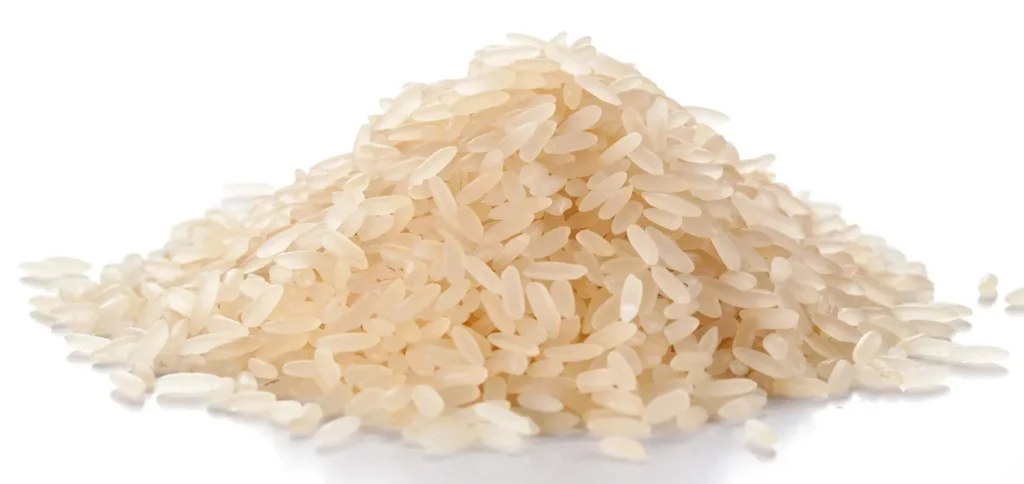
Key Points
Increased US Rice Exports – US rice exports have increased significantly due to India’s export restrictions. – As of March 2024, US exporters had accumulated sales of almost 2.9 million tonnes, compared to 1.7 million tonnes a year ago. – Mexico has been a major import market for US rice, with sales of almost 730,000 tonnes booked as of March 2024.
Higher Rice Prices – CBOT rough rice futures prices have risen to the sixth highest average of $18.66 per cwt in February. – BMI has raised its price forecast for CBOT-listed second-month rough rice futures in 2024 to $16.50 per cwt. – The FAO All Rice Price Index declined by 1.7% in March 2023, but remained 14% higher year-on-year.
India’s Export Restrictions – India has imposed export restrictions on rice, including a ban on broken rice and a 20% export duty on white and parboiled rice. – These measures were taken due to weather-related impacts on rice production. – India’s rice production is estimated to be 2 million tonnes lower this year compared to last year.
Global Rice Market Outlook – BMI expects the global rice market to return to a net production surplus of 4.9 million tonnes in 2024-25. – World rice production is forecast to increase by 2.3% year-on-year to 525.9 million tonnes. – World rice consumption is expected to increase by 0.1% to 521 million tonnes. – Rice prices may begin easing from 2026 to $15.65 per cwt.
RBI Denies SFB Licenses to Dvara Kshetriya Gramin and Tally Solutions
The Reserve Bank of India (RBI) has rejected two more applications for small finance bank licenses, bringing the total number of rejected applications to 11. The remaining two applications are still under review.
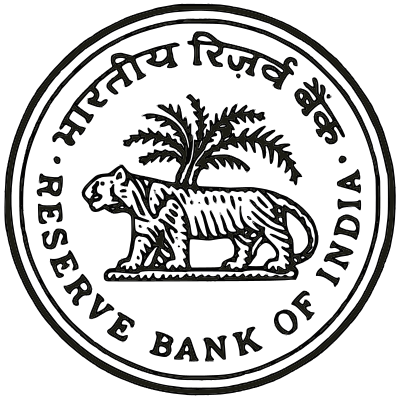
Key Points:
Applications Rejected:
- Dvara Kshetriya Gramin Financial Services (April 2021)
- Tally Solutions Private (August 2021)
Applications Under Examination:
- Annapurna Finance Private (universal bank license, Q3 FY23)
- Fino Payments (transition to small finance bank, Q3 FY24)
Previous Applications Rejected:
- VSoft Technologies Private
- Calicut City Service Co-operative Bank
- Akhil Kumar Gupta
- Cosmea Financial Holdings
- West End Housing Finance
Applications Received:
- 13 applications for universal or small finance banks under ‘on tap’ licensing guidelines
RBI Grants In-Principle Approval for Revolut’s Prepaid Payment Instrument License
Revolut India has received in-principle authorization from the Reserve Bank of India (RBI) to issue Prepaid Payment Instruments (PPIs), including prepaid cards and wallets. This enables Revolut to operate as a domestic player in India, offering both international and domestic payment solutions on a single platform.

Key Points:
- RBI Authorization: Revolut India has received in-principle authorization from the RBI to issue PPIs.
- Domestic Player: This authorization allows Revolut to operate as a domestic player in the Indian market.
- Integrated Platform: Revolut can now offer both international and domestic payment solutions on a single platform.
- Unique Position: Revolut is uniquely positioned in India to provide both international and domestic payment services.
- Gearing Up for Entry: Revolut has been preparing for its entry into India for the past two years, working closely with the RBI.
- Localized App: India is the only market where Revolut offers a localized version of its app.
FSSAI Extends Deadline for International Food Facility Registration to August 31
The Food Safety and Standards Authority of India (FSSAI) has extended the deadline for foreign food manufacturers to register with the authority until August 31st. This extension applies to imports of milk and milk products, meat and meat products, and other specified food categories. The extension was granted in response to concerns from industry stakeholders about disruptions in imports.

Key Points:
- Extension of Registration Deadline: Import of specified food categories from both registered and non-registered foreign food manufacturing facilities will be allowed until August 31st.
- Mandatory Registration: The Food Safety and Standards (Import) First Amendment Regulations 2021 require foreign food manufacturing facilities exporting to India to register with FSSAI.
- Stakeholder Concerns: Industry stakeholders raised concerns about disruptions in imports due to the registration requirement.
- Extension Request: Stakeholders requested an extension of the transition period for registration to avoid disruptions.
- Information Sharing: Stakeholders must provide FSSAI with information about international manufacturing facilities at least 30 days before shipment.
- Online Registration: Foreign food manufacturers are encouraged to register or update their facilities through the FSSAI online portal ‘ReFoM’ to avoid trade disruptions.
Fintech Funding Plummets 57% in First Quarter of 2023
Fintech start-up funding in India declined by 57% in Q1 2024 compared to Q1 2023, with a total funding of $551 million. However, it increased by 59% compared to Q4 2023. Late-stage funding witnessed a significant rise, while seed-stage and early-stage funding declined. India ranked third globally in fintech funding in Q1 2024. Alternative lending, regtech, and banking tech emerged as top performers, with alternative lending garnering 89% of the total funding.
Key Points
Funding Decline – Funding for fintech start-ups declined by 57% in Q1 2024 compared to Q1 2023. – Seed-stage funding plummeted by 75%, and early-stage funding dropped by 35%.
Late-Stage Funding Surge – Late-stage funding rounds witnessed a phenomenal rise of 392% in Q1 2024.
Global Ranking – India secured the third position globally in terms of funding raised for the fintech sector in Q1 2024.
Top Performers – Alternative lending, regtech, and banking tech emerged as top performers in Q1 2024. – Alternative lending garnered 89% of the total funding.
Acquisitions and IPOs – The quarter saw four acquisitions, a 43% drop from Q4 2023. – Medi Assist and IBL Finance went public in Q1 2024.
Top Investors – Peak XV Partners, Y Combinator, and LetsVenture are the “all-time” leading investors in fintech. – Saison Capital, Hem Angels, and Capital A led seed investments in Q1 2024. – Peak XV Partners, RTP Global, and Asha were prominent in early-stage investments. – Elev8, Epiq Capital Advisors, and UC-RNT Fund are the top investors in late-stage investments.
Paddy and Bajra Cultivation Expands, Boosting Summer Crop Coverage by 8%
The area under summer crops in India has increased by 8% compared to last year, with a significant rise in summer paddy, pulses, and coarse cereals. However, oilseeds acreage has slightly declined. Despite the increase in summer crop coverage, rainfall has been deficient in most regions, except for central India.
Key Points:
Summer Crop Coverage: – Area under summer crops reached 60.63 lakh hectares, an 8% increase from last year.
Summer Paddy: – Sowing increased to 29.61 lakh hectares, an 11% rise from last year.
Summer Pulses: – Coverage increased by 5% to 11.85 lakh hectares, with higher acreage of urad and moong.
Summer Oilseeds: – Acreage reported at 8.99 lakh hectares, slightly lower than last year. – Groundnut acreage declined marginally, while sesamum acreage increased.
Summer Coarse Cereals: – Acreage increased by 13% to 10.18 lakh hectares, with higher coverage of jowar and bajra.
Rainfall: – Cumulative rainfall in the pre-monsoon season is 17% below normal. – North-west region is deficit by 22%, while central India has received above-average precipitation.
Central Government Employees’ HRA to Increase Significantly Following DA Hike to 50%: Details and Timeline
The dearness allowance (DA) for central government employees has been increased to 50%, effective from January 1, 2024. This increase triggers a revision in certain allowances, including House Rent Allowance (HRA). However, there is no separate order regarding the HRA revision, as it can be implemented directly based on existing guidelines. The increased HRA is expected to be paid from the March 2024 salary.
Key Points:
DA Increase: – DA increased to 50% for central government employees. – Effective retrospectively from January 1, 2024.
HRA Revision: – HRA revised when DA reaches 50%. – Rates of HRA for X, Y, and Z cities revised to 30%, 20%, and 10% of basic pay, respectively.
Separate HRA Order: – No separate order expected for HRA revision. – Revisions can be implemented directly based on existing guidelines.
Effective Date of Increased HRA: – Increased HRA likely to be paid from March 2024 salary. – Should have already been paid with the hiked DA in March.
Clarification on India-Mauritius Tax Treaty Released by Income Tax Department
The Income Tax Department has clarified that the recent amendments to the India-Mauritius Double Taxation Avoidance Agreement (DTAA) are not yet in effect. The Protocol pertaining to the amendment has not been ratified and notified, and any concerns regarding the amendments will be addressed as necessary when the Protocol comes into force.
Key Points:
India-Mauritius Tax Treaty:
- India and Mauritius signed an amendment to the DTAA on March 7, 2024, including a principal purpose test (PPT) to prevent tax avoidance.
Concerns Raised:
- Foreign portfolio investments via Mauritius may face increased scrutiny.
- Past investments may be affected by the amended protocol.
Historical Context:
- Mauritius has been a preferred jurisdiction for investments in India due to non-taxability of capital gains until 2016.
- In 2016, India and Mauritius revised the tax agreement, giving India the right to tax capital gains on transactions routed through Mauritius from April 1, 2017.
Impact of PPT Test:
- Tax authorities in India can deny treaty benefits if they conclude that obtaining such benefits was a principal purpose of the transaction.
- Existing structures and investments from Mauritius will need to pass the PPT test.
Market Reaction:
- India’s benchmark equity indices Sensex and Nifty declined by 1% on Friday due to profit-taking by investors.
Tax Authority to Target 15.2 Million Individuals for Income Tax Return Filing
The Income-Tax Department will launch a drive to identify and pursue individuals and entities who have failed to file tax returns despite having income or tax deducted at source (TDS). The department has identified 15.2 million such individuals and will reach out to them from April 15th.
Key Points:
- Non-Filers Identified: The department has identified 15.2 million individuals who have not filed tax returns despite having income or TDS.
- TDS Deducted: Many individuals had TDS deducted but did not file returns.
- Number of Taxpayers and Returns: In 2022-23, there were 89 million taxpayers, but only 74 million returns were filed.
- Potential Non-Filers: An estimated 19.7 million individuals may have failed to file returns despite incurring TDS.
- Categories of Non-Filers: The majority of non-filers (19.3 million) were individuals, with smaller numbers in other categories such as Hindu undivided families and firms.
- High Bank Transactions: The department has identified individuals with high bank transactions linked to their PANs who may be required to file returns.
- Data-Driven Approach: The department is using data to identify non-filers and detect mismatches.
- Potential Taxpayers: The department has identified 8,000-9,000 potential taxpayers with high-value purchases or cash deposits who are being sent tax notices.
- Consequences: Wilful defaulters may face penalties, while taxpayers with genuine reasons may need to provide explanations or file returns.
SEZ Amendment Bill: Potential Inclusion in 100-Day Agenda
The proposed amendments to the Special Economic Zones (SEZ) law are expected to be included in the commerce ministry’s 100-day agenda for the next government and may be introduced in the monsoon session of Parliament. The amendments aim to revive SEZs and facilitate business transactions between SEZs and the domestic market.
Key Points:
1. Proposed Amendments: – Flexible framework for the sale of products manufactured in SEZs in the domestic market. – Streamlining approval processes for SEZ units.
2. Aim of Amendments: – To revive SEZs and facilitate business transactions between SEZs and the domestic tariff area (DTA).
3. SEZ Definition: – Enclosures treated as foreign territories for trade and customs duties, with restrictions on duty-free sales outside these zones in the domestic market.
4. Inter-Ministerial Meeting: – The commerce ministry has held an inter-ministerial meeting on the proposals.
5. Government’s Stance: – Commerce and Industry Minister Piyush Goyal has indicated that the government is considering easing certain restrictions for SEZ units to promote growth.
6. Think Tank Proposal: – Global Trade Research Initiative (GTRI) has suggested allowing the sale of products manufactured in SEZs in the domestic market on payment of duty foregone on inputs.
7. Current DTA Sales: – SEZ units are currently allowed to sell their products in DTA on payment of duties on an output basis (finished goods).
8. MOOWR Scheme: – The government allows DTA sales on payment of duty foregone on input basis to firms operating under the Manufacturing and Other Operations in Warehouse Regulations (MOOWR) scheme.
9. Importance of SEZs: – SEZs have emerged as an important contributor to India’s exports.
Kishore Biyani Divests SOBO Mall to K Raheja Corp to Repay Lenders
Kishore Biyani, promoter of Future Group, has settled dues of Rs 571 crore with lenders of Bansi Mall Management Company by making a one-time payment of Rs 476 crore, resulting in an 83% recovery for creditors. The settlement was facilitated by K Raheja Corp., which acquired SOBO Central Mall, the country’s first mall.
Key Points:
Settlement Details: – Kishore Biyani settled dues of Rs 571 crore with lenders of Bansi Mall Management Company. – The settlement amount was Rs 476 crore, representing an 83% recovery for creditors.
Property Acquisition: – K Raheja Corp. Real Estate acquired SOBO Central Mall with a leasable area of nearly 150,000 sq ft. – The company paid stamp duty of Rs 28.56 crores for registering the deal.
Lenders Involved: – Canara Bank led the creditors and had put the property on the block to recover dues. – Other lenders included Punjab National Bank, Union Bank of India, and Future Brands.
Mall’s History and Challenges: – SOBO Central Mall was the country’s first mall, opening in the late 1990s. – It initially faced a decline due to the emergence of newer and larger retail properties. – The pandemic and financial difficulties faced by Future Group companies further impacted the mall’s rental income and retail business.
Future Group’s Financial Troubles: – Banks have lost over Rs 33,000 crore to the Future Group due to the liquidation of Future Retail and the ongoing resolution process for Future Enterprises.

